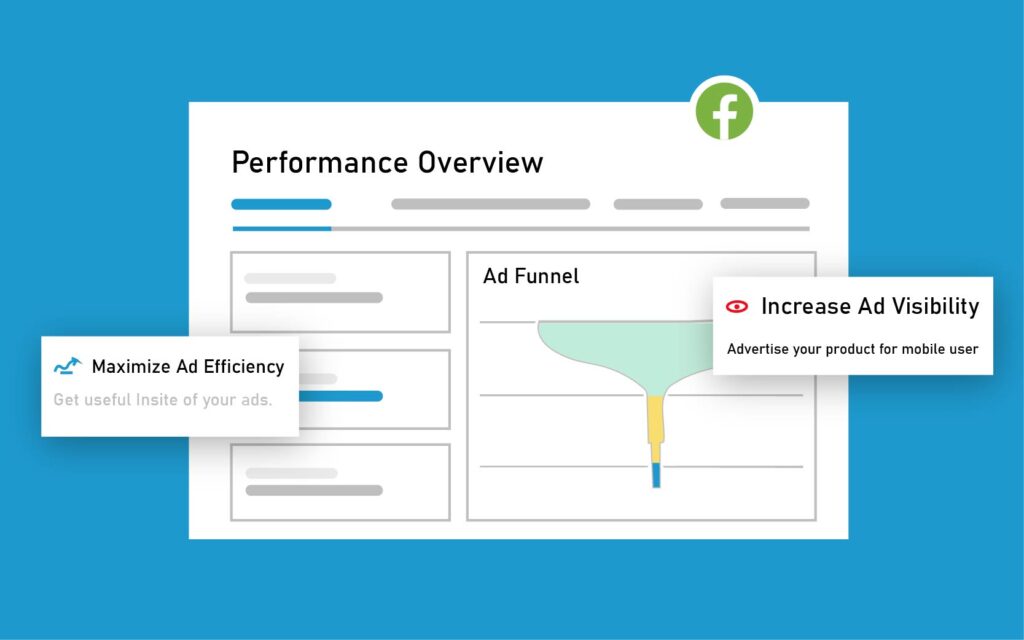
LinkedIn Client Hunting Course in Mohakhali
LinkedIn is more than just a platform for networking; it’s a powerful tool for finding

If you want my team to manage your good marketing for you, click here
Marketing on Facebook is vital for businesses looking to enhance their online presence and engage with their audience effectively. He, she, or they can unlock the full potential of this social media platform through a comprehensive Facebook Marketing Course in Lalmatia. This guide will provide insights into the course structure, key learning outcomes, and how participants can leverage Facebook’s tools to drive traffic and increase conversions. By the end of the course, students will be equipped with practical skills to implement successful marketing strategies tailored to their specific goals.
While exploring the various types of Facebook marketing, one can identify key strategies that brands employ to engage audiences effectively. These strategies include:
Perceiving these different types allows businesses to tailor their approach to meet specific marketing goals.
| Type of Marketing | Description |
|---|---|
| Organic Marketing | Engaging audiences without paid ads. |
| Paid Advertising | Utilizing financial resources to boost visibility. |
| Influencer Collaborations | Partnering with influencers for wider reach. |
| Brand Partnerships | Joining forces with other brands for promotions. |
| Event Promotions | Advertising specific events or campaigns. |
On Facebook, organic marketing involves creating and sharing content that engages the audience without the use of paid ads. This strategy focuses on building relationships and fostering community through posts, comments, and shares. By consistently posting valuable content, brands can organically cultivate a loyal following, showcasing their personality and values. Effective organic marketing creates an authentic connection with followers, helping to establish long-term brand loyalty.
The strategy of paid advertising on Facebook enables businesses to reach targeted audiences efficiently. Brands invest in sponsored posts and ads to expand their visibility and attract potential customers quickly. This method allows for precise audience targeting based on demographics, interests, and behaviors, thus maximizing return on investment.
Paid advertising on Facebook offers multiple formats to suit various marketing objectives. From boosted posts to carousel ads, brands can choose the option that best aligns with their goals. This flexibility allows them to showcase products, promote events, or encourage website traffic. With the ability to track campaign performance in real-time, businesses can adjust their strategies for optimal results. He or she who utilizes paid advertising effectively can significantly enhance their market presence and drive conversions.
The success of a Facebook marketing strategy lies in a few key practices that he or she should adopt. To maximize effectiveness, they can follow these vital tips:
Assume that implementing these practices will lead to more engagement and a stronger brand presence.
If he or she aims to captivate their audience, crafting engaging content is vital. They should focus on storytelling, using visuals, and asking questions to provoke audience interaction, thereby building a community around their brand.
Essential to any Facebook marketing strategy, she must ensure that her content reaches the right audience. This involves thorough audience research and utilizing Facebook’s targeting options to engage those most likely to respond to her message.
The ability to accurately define and target the right audience can significantly enhance the effectiveness of their marketing campaign. By analyzing demographics, interests, and online behaviors, they can tailor content that resonates with specific groups, increasing engagement and conversion rates. Utilizing tools like Facebook Insights allows them to refine their targeting continually, ensuring that their marketing efforts yield the best possible results.
If anyone wants to harness the power of Facebook for marketing, understanding the step-by-step process is vital. They must follow clear guidelines to maximize their success. Below is a structured approach that breaks down the key elements of Facebook marketing.
Table of Facebook Marketing Steps
| Step 1 | Set Up a Business Page |
| Step 2 | Define Target Audience |
| Step 3 | Create Engaging Content |
| Step 4 | Run Effective Ad Campaigns |
Little did they know, setting up a Facebook Business Page serves as the foundation for their marketing efforts. It is important to include vital information such as business hours, contact details, and a compelling profile picture. This creates an inviting online presence that resonates with potential customers.
To achieve optimal results, they must carefully plan and execute their ad campaigns on Facebook. This involves selecting the right objectives, targeting specific demographics, and utilizing eye-catching visuals and compelling ad copy to engage the audience. Proper analysis of performance metrics aids in refining the strategy.
This commitment to understanding audience preferences and ongoing adjustments ensures that their advertising efforts yield the best possible outcomes. By utilizing Facebook’s sophisticated targeting tools, they can reach users who are more likely to be interested in their products or services. Continuous evaluation and testing different ad formats also enhance effectiveness and increase return on investment.
Now, understanding key factors for effective marketing on Facebook can drastically enhance outreach. He or she should focus on the following elements:
Assume that these factors are consistently implemented, they will reflect in improved results.
Little is known about how Facebook’s algorithm influences post visibility. It prioritizes content that generates interactions, rewarding he or she who engages their audience effectively. Understanding engagement metrics can provide valuable insights into what resonates with viewers.
Even the best strategies can falter without tracking performance metrics. He or she must analyze data to gauge the effectiveness of their Facebook marketing efforts. Key metrics include reach, engagement rates, and conversion statistics.
A comprehensive approach to measuring performance metrics allows marketers to adjust strategies based on real-time feedback. By examining trends in audience engagement and conversion rates, they can refine content and drive better results. Consistently evaluating these metrics provides clarity on what works and what can be improved over time, ensuring more effective marketing campaigns on Facebook.

Not every strategy yields the same results, and Facebook marketing is no exception. Here are the pros and cons of using this platform for marketing efforts:
| Pros | Cons |
|---|---|
| Wide audience reach | Increased competition |
| Advanced targeting options | Potential for negative feedback |
| Cost-effective advertising | Algorithm changes affecting visibility |
| Engagement with customers | Requires consistent content creation |
| Insights and analytics tools | Limited organic reach |
Marketing on Facebook allows businesses to effectively engage with their target audience. They can utilize a variety of tools and advertisements to build brand awareness, nurture customer relationships, and drive traffic to their websites. The platform also provides valuable insights through analytics, enabling marketers to fine-tune their strategies for better results.
For some, Facebook marketing presents certain challenges that can hinder success. Businesses must navigate frequent algorithm changes that affect their visibility and engagement rates. Additionally, the competition can be overwhelming, as many brands attempt to capture the same audience’s attention.
Another limitation is the necessity for constant content production. Staying relevant requires regular updates and creative posts to maintain audience interest. Additionally, negative feedback or comments can damage a brand’s reputation if not handled properly. These factors create a complex environment where marketers must actively adapt to dynamic conditions to succeed.
Upon reflecting, they recognize the value of the Facebook Marketing Course in Lalmatia as a comprehensive resource for individuals aiming to elevate their digital marketing skills. This course equips participants with a deep understanding of Facebook’s advertising tools, audience targeting, and content strategies. She finds that the practical insights and hands-on experience provided in the course greatly enhance their ability to navigate the competitive landscape of social media marketing. As a result, he believes that this course serves as an important stepping stone for aspiring marketers seeking to make a significant impact in their fields.
It is really a win-win situation 😲 for you to join the “Digital Wit Academy” Facebook group and gain the most updated information about different digital marketing strategies.

Kamrul Hassan is the founder and CEO of Digital Wit Academy. As you know, Digital Wit Academy is a fast-growing Bangla e-learning platform that provides quality knowledge and support to students. Kamrul Hassan is a government-certified Professional Digital Marketing Expert and a trainer/mentor in the Youth and sports ministry projects of the BD government. His Team Digital Wit Academy consists of well-educated and highly motivated core team members who are very friendly. They believe in quality support to make the students’ careers more successful. Support is the best part of the Digital Wit Academy courses.

Stop wasting money and unlock the hidden potential of your advertising skills with Digital Wit Academy.

LinkedIn is more than just a platform for networking; it’s a powerful tool for finding

Most professionals are aware of LinkedIn’s potential as a powerful tool for networking and client

Course participants will discover the art of leveraging LinkedIn client hunting to attract effectively. In

With the rise of digital networking, mastering LinkedIn for client acquisition has never been more

There’s an exciting opportunity for professionals seeking to enhance their networking skills through my LinkedIn
Hey, I’m Kamrul Hassan, the mastermind of Digital Wit. I’m confident to grow your brand. My only question is, will you grab the opportunity?